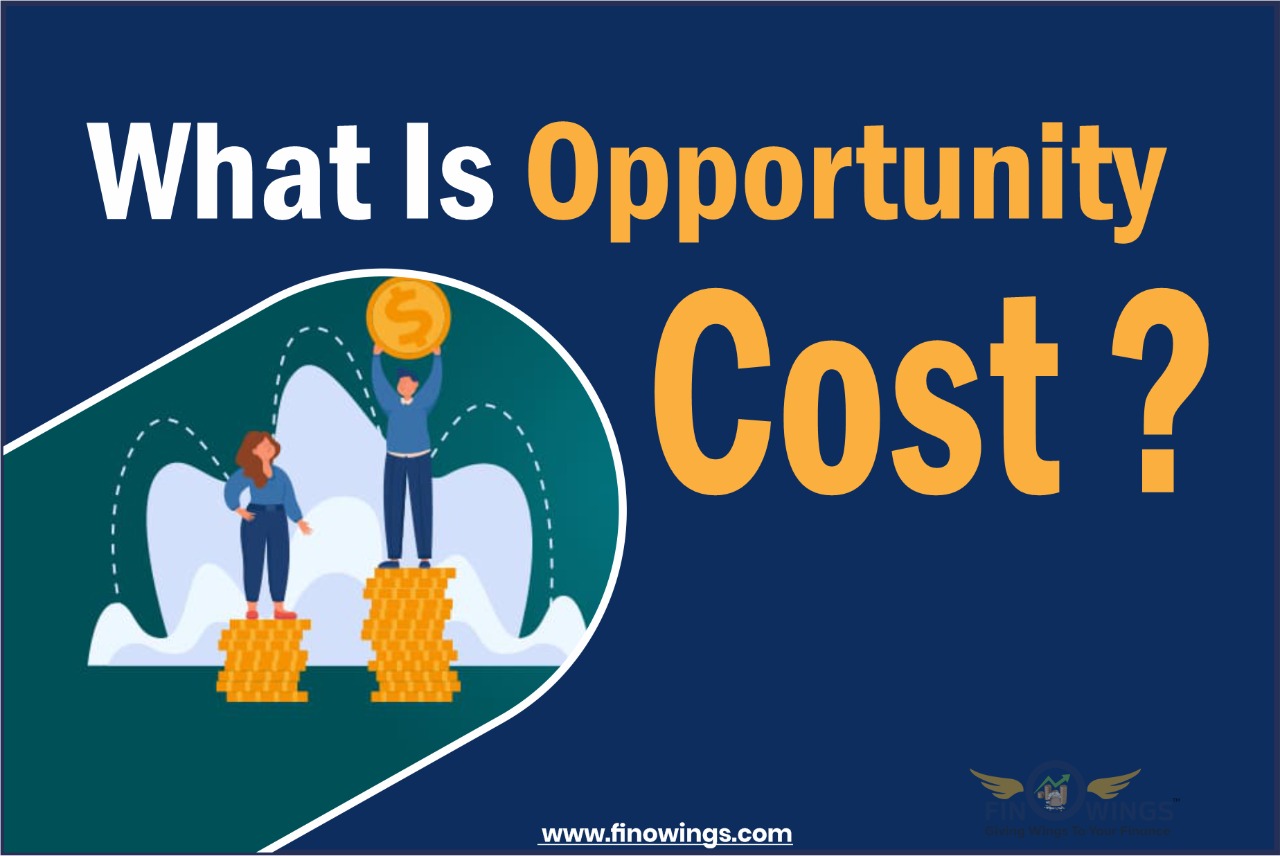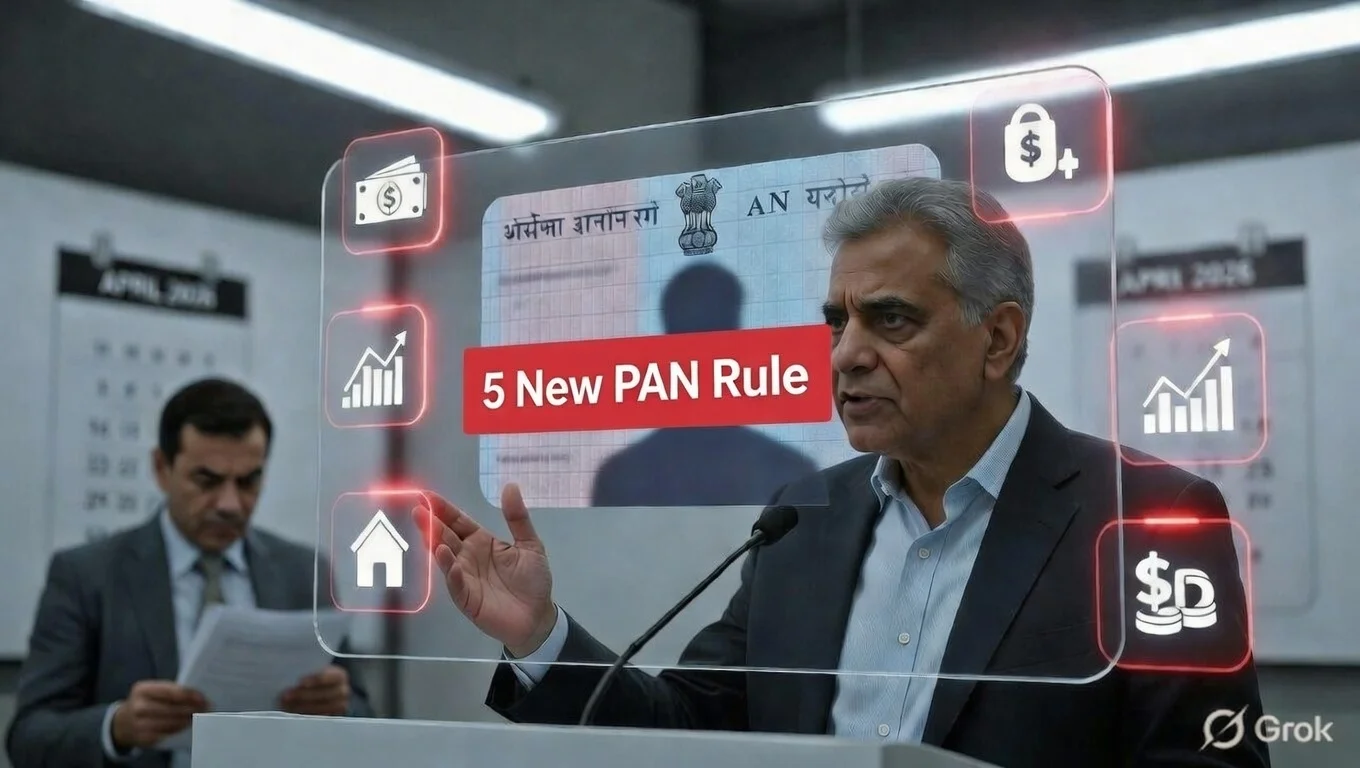Home >> Blog >> What is Opportunity Cost?
What is Opportunity Cost?

Table of Contents
Also, known as the alternative cost, Opportunity cost is the economic concept that represents the potential benefits that an individual, investor or organisation misses out on when choosing one option or alternative over another option or alternative. In short, opportunity cost is the value of the next best option when a decision is made. For example, consider the choice between selling stock shares now or holding them to sell them later. While it is true that an investor can secure any immediate profit by making an immediate sale, they lose out on any future gains from the investment. From an investor's point of view, understanding potential missed opportunities can guide individuals and organisations to make more profitable decisions and Opportunity cost will always mean that investment choices made will result in an immediate loss or profit in the future.
Since opportunity costs are hidden by definition, they can be easily ignored. But opportunity cost plays a very important role in determining the capital structure of a business. It is an intrinsic cost used for strategic thinking. It is not incorporated in accounting profit and is excluded from outside financial reporting. Opportunity cost allows economists to analyse the relative monetary values of different goods and services. In addition to the potential returns, the relative risks associated with each option must also be assessed.
How To Calculate Opportunity Cost:
While opportunity cost is not an accurate measurement, one way to measure it is to properly assess it, consider the costs and benefits of each of the available options, and weigh them against the others.
Formula and Calculation of Opportunity Cost
"‹Opportunity Cost = FO− CO
Where: FO=Return on best forgone option; CO=Return on chosen option"‹
The formula to calculate the opportunity cost is the difference between the expected return of each option. At a basic level, opportunity cost is a common-sense concept that economists and investors like to explore. According to this calculation, a positive opportunity cost indicates that you have a different option with a potential worth greater than your current one. There is no higher value choice when the solution to this equation is a negative number.
Example of Opportunity Cost:
An example of an opportunity cost might be that when you decide to buy something over another item, you lose out on the potential benefits of another item. Suppose someone invests ₹1,000,000 in the stock market that will generate a return of 5%, but if he could have spent the money on a different investment that generates a 7% return, so the 2% difference between the two options is the foregone opportunity cost of this decision.
A further illustration of opportunity cost is making the decision between dropping a book and purchasing a movie ticket. What do you give up by choosing one over the other? Opportunity costs can also be used to evaluate choices in daily life rather than just financial or investment decisions. Similar to the previous example, if the government intends to spend the full Rs. 1 crore budget on modern infrastructure and health, the same budget cannot be utilised for the next best options, namely education and defence. It essentially explains how opportunity costing functions.
Why Opportunity Cost is Important:
Opportunity cost analysis plays an important role in determining the capital structure of the business. It is clear that decisions about what to invest in are inherently informed by opportunity cost. But once you understand that opportunity cost is a factor you must consider, the number of opportunities to consider can seem intimidating. You don't want to make the wrong investment choice and end up incurring the wrong opportunity cost.
Even though it is not a concept in accounting, it does not appear in financial records, it is influential in important decision-making. One indicator of good planning is the proper management of opportunity costs in detail. This factor covers all expenses for choosing one over the other, including lost time, energy and earned utility. It is very important in making wise decisions. It should not be in the form of money, but should also be in the time that the company will receive in the future.
To understand more about this concept, one must look at the benefits and limitations of opportunity cost.
Opportunity Cost Benefits:
Opportunity cost has the following benefits;
|
Decision Making |
· Opportunity cost helps in evaluating various alternatives which in turn helps in better decision making. |
|
Get Profitable Projects |
· Another advantage of opportunity cost is that while evaluating various options, the company also finds other profitable projects that the company can undertake in the future. |
During this analysis, the company tries to simulate a real project to find out the relative importance of each project and hence if there is some mistake then it can be found during opportunity cost analysis instead of actual project implementation.
·Opportunity cost analysis helps people become aware of lost opportunities and make more informed and financially sensible decisions that maximise resources.
Limitations of Opportunity Costs:
The idea of opportunity cost helps you to better analyse the possible alternatives and opportunities available at the time of making a decision. However, this concept has certain limitations which are as follows,
|
Time-Consuming |
· Opportunity cost is time-consuming, as an evaluation of various projects requires time on the part of the company and cannot be done overnight, this is hampering the implementation of the projects. |
|
Unproductive |
Opportunity cost is an unproductive exercise because it does not help in increasing the productivity of the company and this analysis only helps in understanding whether or not the project is attractive as compared to other projects. |
|
Not Always Accurate |
Opportunity cost may not always accurately predict future returns at the time of decision making. Particularly in businesses where the variability of the rate of return is high. It is not always possible to make a quantitative comparison between two alternatives. It requires a common unit of measurement i.e. money spent, workforce, time used etc. |
|
Not Accounted |
Although useful in decision making, the biggest drawback of opportunity cost is that it is not accounted for in a company's accounts because opportunity costs are often related to future events, making them very difficult to measure. |
Opportunity Cost vs. Sunk Cost:
A sunk cost is money that has already been spent, whereas an opportunity cost is the prospective potential return on an investment not to be earned in the future because the capital was invested elsewhere. Thus, a sunk cost is backwards-looking, whereas an opportunity cost is forward-looking. For example, a business pays ₹50,000 to obtain a piece of heavy equipment; it’s a sunk cost. Conversely, opportunity cost represents an analysis of how ₹50,000 might otherwise be used.
Conclusion:
The concept of opportunity cost has many applications in economic theory and is a fundamental economic principle that applies to enterprises as well. It aids in our comprehension of how different products' costs compare. Opportunity cost is not an accounting concept, hence it is not recorded in the financial records of a business. It extends beyond financial or economic costs. An opportunity cost would also include the real cost of lost production relative to time wasted or any other profit gain. Opportunity cost is a key idea in economics and is defined as the basic connection between scarcity and choice. Opportunity cost is a crucial factor to take into account when making financial decisions since it enables us to select the best choice from the available options. It also assists us in optimising profit by making optimum use of all resources.
Author
Frequently Asked Questions
Opportunity cost is very important in decision-making. The value of opportunity cost can guide individuals and organisations to make more profitable decisions by evaluating various alternatives. To accurately evaluate opportunity costs, the costs and benefits of each option available must be considered and weighed against the others.
Opportunity cost analysis is important in evaluating the capital structure of a company. It helps us to choose the best one from the available options. For example; When a firm issues debt and equity capital to lenders and shareholders to make repayment and risk investments, it will incur expenses, although each option has an opportunity cost.
Opportunity cost is not always measured precisely at the time of the choice. Rather, the decision-maker can only make an approximate estimate of the implications of the various alternatives.
















